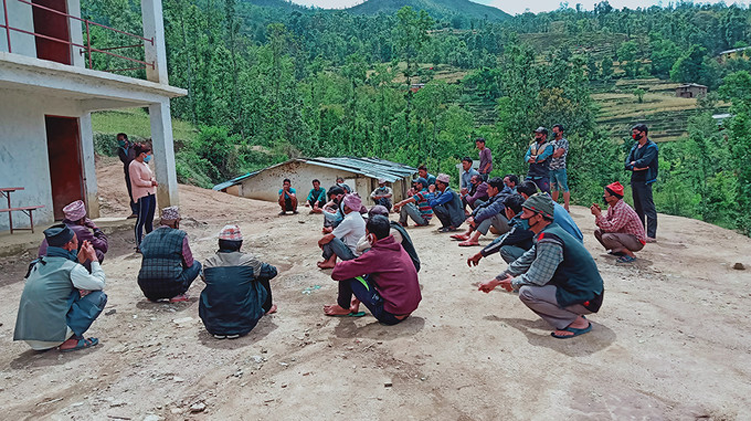When Kabita Bhandari arrived at a COVID-19 quarantine centre in Baitadi District, in far-western Nepal, residents thought she was bringing food. They soon realized she was delivering another kind of essential supplies: contraceptives.
There were four couples staying at the centre, undergoing a mandatory 14-day quarantine after returning from India. They said the family planning supplies were absolutely needed.
“The women were worried about getting pregnant,” recounted Ms. Bhandari.
She and her colleagues are known as “visiting service providers.” They specialize in delivering family planning information and supplies to remote communities. They often go to great lengths, scaling mountains and crossing rivers, to deliver contraceptives to women who need them.
Amid the COVID-19 pandemic, visiting service providers are coordinating with local authorities to help make sure women do not lose access to these services.
To reach the quarantine centre in Puchaudi Municipality, Ms. Bhandari travelled for five hours in a vehicle, then hiked for three hours over rugged terrain. She advised the couples about the range of family planning options available, free of charge.
“After this session, the four women, all in their mid-30s with three to four children each, came to the nearby health centre,” Ms. Bhandari said, referring to a family planning outreach clinic half an hour from the quarantine centre.
All four of the women chose implants that provide long-lasting contraception. Ms. Bhandari, wearing full-length protective gear, inserted the implants.
